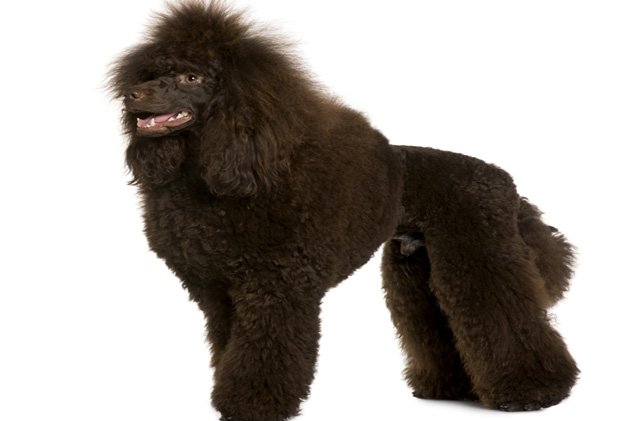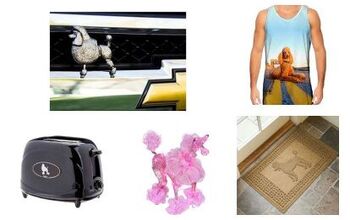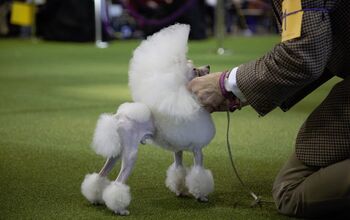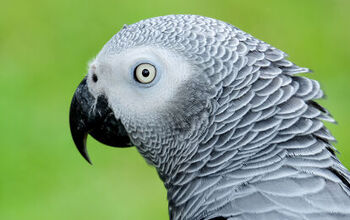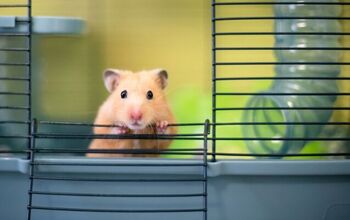Poodle


About Poodle
When you think of a poodle, what kind of dog do you think of? Many of us immediately imagine the Toy Poodle. However, that is only one of the many types of Poodle out there. Sure, the Toy Poodle is iconic, but as a breed, the Poodle has a surprising amount of variety and versatility. Poodles can be athletic, rambunctious, energetic – just about anything under the sun. At least relative to the expectations of Poodles that many people bring to the table.
People are far too willing to put the Poodle in a box of limited expectations. The Poodle deserve more respect than that. They are such a rich and exciting dog breed filled with possibilities. Hopefully over time, The Poodle will finally get the respect that they deserve as one of the most exciting, versatile, and intelligent dog breeds around.
While a lot of people might think of Poodles as the epitome of a lapdog with an elaborate hairstyle, these dogs come in all sizes- from toy to standard Poodles that weigh up to 70 pounds. If you want to find out which type of Poodle is the right one for you- or if the breed is a good match for your family in the first place- read on. As you may have gathered by now, there are so many different types of Poodles out there that almost impossible that that there won’t be one that can fit into your lifestyle.
As a breed, this dog has a surprising amount of variety and versatility.
The Poodle might seem like a posh show dog, but these dogs actually started out as working dogs (generally as water retrievers, or “gun dogs”). Their original role was to assist hunters in retrieving waterfowl (such as ducks) from the water. Their curly coat, which is now primped up for dog shows, was valued for its moisture-resistant qualities. The German word “pudel,” in fact, actually refers to all the splashing these pips would get up to during any hunt. The English word “Poodle” was derived from it. Even though the breed originated in 19th century Germany, the standard was perfected in France, which considers Poodle to be a national dog breed. These dogs are now known primarily as show dogs and pets. Selective breeding had a great deal to do with this change in perception.
There are three varieties of Poodle, and according to the American Kennel Club, the oldest of these varieties is the large or ‘Standard’ variety. The Poodle was bred to have a water-resistant coat – which helps explain the quality of the current dog’s coat – that was eventually groomed and patterned according to taste and style rather than worrying simply about functionality. Other types of Poodle today include Toy and Miniature. Although they retain the main traits of their full-sized relatives, their compact size makes them a perfect fit for condo and apartment dwellers. They are generally quite well behaved pooches who can get on well within a small space and can be left alone for extended periods of time without causing too much trouble.
Other types of Poodle today include Toy and Miniature.
Since there are three varieties of Poodle, two of those varieties – the Toy and Miniature – actually take its pedigree from the oldest of these varieties, the large or Standard Poodle. If you plan on showing your dog, a quality pedigree will be an absolute must. Otherwise, a health guarantee is all you need from a reputable Poodle breeder. It’s important to always request proper papers or guarantees from any breeder. If a breeder is not willing to offer this sort of documentation, then they should not be trusted or patronized. Sadly there are many disreputable breeders indulging in unsafe practices out there. They should be avoided and discouraged;
Poodles have been around for centuries and have ancestors across countries in Europe like Germany, England, and Spain.
The Poodle does not widely differ from other dogs when it comes to their nutritional needs. Like most other dogs, these posh pooches will also thrive on a diet based on high-quality dry food for dogs. Of course, not all types of kibble will do. You’ll have to pick out those that are suitable for your Poodle’s age (puppy, adult, senior), size and activity levels. Kibble appropriate for toy breeds, small breeds, or large breeds will usually be a good fit.
If you are in any way concerned about either establishing or altering your Poodle’s diet, then it is always wise to consult with a veterinarian first. All dogs are different, each with their own needs. While pet food manufacturers and pet blogs provide useful feeding guidelines, they are still simply guidelines and might not necessarily apply to you dog. The only person qualified to determine the specific nutritional needs of your personal pooch is a vet. So always rely on their expertise before making any changes to what you pour into your pup’s food dish.
When it comes to exceptionally smart dogs, this breed ranks at the very top of the list. The impressive smarts are not reserved for only one type of Poodle either. All of them are considered to be second only to Border Collie in terms of intelligence. If you have the right training approach, this dog is going to be highly trainable. They won’t have a problem learning commands or even elaborate tricks and routines- as long as they have the proper motivation. It’s important to focus on positive reinforcement and rewards based training. Anything less is closer to abuse and will never get the results you desire. It will only harm the dog and your relationship.
Toy and Miniature Poodles might be prone to small dog syndrome and have a stubborn streak, so combine positive reinforcement training with a confident, firm attitude for best results. You must establish yourself as the alpha the relationship with a firm, yet gentle approach. Otherwise, your poodle will develop dreaded small dog syndrome and nobody wants that. It will lead to your Poodle becoming a tiny terror instead of a loving companion.
The Poodle’s temperament is often about energy.
Weight for Poodles will vary depending on the type. Toy can weigh as little as 6 pounds, Miniature version is usually at 15 pounds, while the Standard size can get up to around 40 to 70 pounds.
The Poodle’s temperament is often about energy. From the Standard to the Miniature, you can expect your dog to be playful and lively- contrary to the popular image of a perfectly groomed lazy lap dog. They are also very sweet and affectionate. Combine that with their human-like intelligence and you have a dog that forms an inseparable bond to his family. Your Poodle will feel more like a fury relative than a family pet.
Curious, goofy, and smart, Poodle will love to play and can be a great companion to children. However, Toy and Miniature variants are also very fragile so they shouldn’t be left alone with young children, as they could inadvertently hurt them. These are fragile animals who need to be handled with a gentle touch at all times.
Poodles can run into a few nasty health problems including Addison’s Disease, thyroid issues, and cancer. Like almost all dogs, this breed can run into problems with the joints such as hip dysplasia. It’s important to maintain regularly scheduled checkups with a vet to ensure that any potential health issues are identified and treated as early as possible.
A standard Poodle should have a life expectancy of around 12-15 years. The same approximate life expectancy goes for Miniature Poodles, which gives them plenty of time to grow up along with your children if you’re considering getting this breed as a family pet.
Being energetic as they are, this breed will meed a good deal of exercise. A lot of them will also enjoy living up to their hunting and pointing instincts. As former retrievers, Poodles should be able to enjoy chasing balls and Frisbees, as well. The American Kennel Club lists this dog as an “active” breed. They will require at least 30 to 60 minutes daily exercise, depending on their size and overall activity level. If you are unable to meet these exercise requirements, your Poodle will run the risk of developing obesity or burning off all of their excess energy doing mischievous activities that your might not appreciate.
The Poodle, though often equated to the beauty with no brains, is exceptionally smart, active and excels in obedience training.
The American Kennel Club’s description of the Poodle reads as follows: “The Poodle, though often equated to the beauty with no brains, is exceptionally smart, active and excels in obedience training.”
The coat of the Poodle is, of course, one of its defining characteristics. Their curly, hypoallergenic hair comes in many different colors. There are the usual white, black, cream coats to blues, apricot, chocolate, and bi-colored poodles.
Many people will groom their dog stylishly and in extravagant ways, especially for dog shows. If you’re just taking in this dog as a pet, however, basic grooming is all they really need. Routine brushing to prevent matting and tangling to regular visits to a professional for a trim are all it takes to keep those curls perfect. Grooming your Poodle in an extravagant manner and creating cartoonish fluffy and puffy hairstyles is encouraged, but not required.
As this is an energetic breed, you can imagine how mischievous and active a puppy can be as it grows up. Make sure to get them through basic obedience and socialization early on. These dogs can be troublingly strong-willed if you let them.
Photo credit: Eric Isselee/Shutterstock

Amy Tokic, Editor of PetGuide.com, is a passionate animal lover and proud pet parent of Oscar, a Shih Tzu/Chihuahua cross, and Zed, a Japanese Chin. Her love of animals began in kindergarten, when she brought her stuffed dog Snoopy into class with her every day. Now, she writes about her adventures in pet ownership and tirelessly researches products, news and health related issues she can share with other animal enthusiasts. In her free time, Amy loves perusing used book and record stores, obsessing over the latest pet products available and chasing squirrels with wild abandon (a habit attributed to spending too much time with her pooches).
More by Amy Tokic



